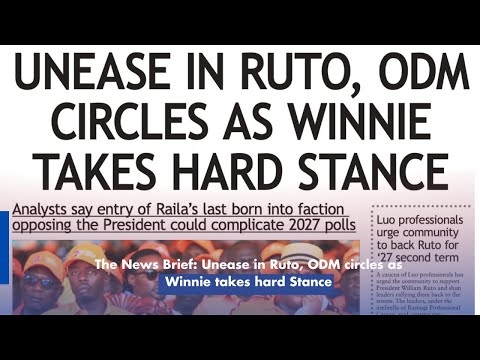The Departmental Committee on Finance and National Planning is currently conducting public hearings on the proposed tax measures in the Finance Bill, 2024.
The Bill seeks to raise Sh302 billion of additional tax revenue of the Sh3.35 trillion total revenue target in the 2024-25 financial year.
Inside the Bill lie a number of tax proposals, some of which have already attracted debate in different fora as stakeholders and Kenyans in general try to make sense of their implications on their income.
Among the proposals are amendments to the Income Tax Act to introduce a 2.5 per cent motor vehicle circulation tax capped at a maximum of Sh100,000 per annum.
If passed into law, the Bill, then to be known as an Act, will require insurance companies to collect the tax at the point of issuance of motor vehicle insurance cover and remit the same to Kenya Revenue Authority within five days.
“An insurer who fails to collect and remit the motor vehicle tax shall be liable to pay a penalty equivalent to 50 per cent of the uncollected tax and actual amount of the uncollected tax,” the Bill states.
It says the tax shall be payable based on the value of the motor vehicle.
“The value of the motor vehicle shall be determined based on the make, model, engine capacity in cubic centimetres and year of manufacture of motor vehicle,” the states.
Given the details in the Bill, a quick calculation shows that whereas owners of relatively cheaper vehicles will pay the circulation tax equivalent to the value of their cars, the tax will on the other hand favour high-end car owners.
An online spot check at several car dealerships indicates, for instance, that one dealer sold a 1300cc locally used Mazda Demio SkyActive manufactured in 2016 for Sh1,050,000.
Upon issuance of insurance, the new owner will under the proposed Finance Bill be expected to part with ShSh26,250 circulation tax on top of their car insurance cover.
The owner of a 2000cc 2017 Toyota Noah going for Sh2.8 million will on the other hand part with Sh70,000 while the circulation tax for a 2400cc 2016 Toyota Hilux going for Sh3,550,000 comes to Sh88,750.
Meanwhile, a 2018 Toyota Crown of 2000cc engine capacity worth Sh4.6 will attract Sh100,000 although based on the Bill, the owner is supposed to have paid Sh115,000, this being 2.5 per cent of the car’s value.
Compare this with a 2023 Range Rover Sport priced from Sh45 million, and 2.5 per cent of this gives you Sh1,125,000.
But if the Bill is enacted as is, the owner of such a high-end vehicle will part with nothing more than Sh100,000, being the maximum payable amount, this being Sh1,025,000 less than the actual tax based on the value of their car.
On day one of public submissions on the proposed motor vehicle tax on May 28, Deloitte Kenya proposed that the tax be reduced to 0.5 per cent of the value of the vehicle.
Instead of Sh5,000, they proposed the minimum tax levied be Sh1,000 and the maximum capped at Sh20,000 instead of Sh100,000 as proposed in the Bill.
“The tax negatively impacts motor vehicle owners who are already struggling with reduced disposable income due to high fuel prices coupled with regular repairs and maintenance costs for their vehicles due to poor road networks as a result of the heavy rainfall experienced recently,” the firm said.
The audit firm further said the tax will potentially increase operational costs of public transport vehicles which will in turn pass the burden to commuters by hiking bus fares.
The cost of doing business in Kenya, Deloitte further argued, will likely go up as transporters of goods would increase freight costs for businesses.
“The tax could potentially hurt the insurance sector by increasing the cost of insurance cover thus reducing insurance penetration in the country which is already too low at less than three per cent.”
On penalties, Deloitte suggested that this be aligned with Section 83A of the Tax Procedures Act, 2015.
On Monday, June 3, Nyeri Town MP Duncan Mathenge appeared to agree with Deloitte’s proposal for reduction of the tax to 0.5 per cent.
Speaking on Citizen TV, the MP said the tax should be reduced and possibly be scrapped.
"We can say that this tax, we do not think it is in the better interest of Kenyans and let us do away with it in totality," he said.
The Institute of Certified Public Accountants of Kenya (ICPAK) made similar recommendations – scrap the motor vehicle tax in totality.
“Motor vehicle tax is tantamount to taxing capital and is likely to have significant negative ripple effects on the economy. We recommend that Clause 9, the part seeking to introduce motor vehicle tax by way of introducing Section 12H be deleted,” ICPAK said.
The Institute of Economic Affairs proposed that the motor vehicle circulation tax be evaluated “in the context of existing vehicle-related taxes and related levies”.
















